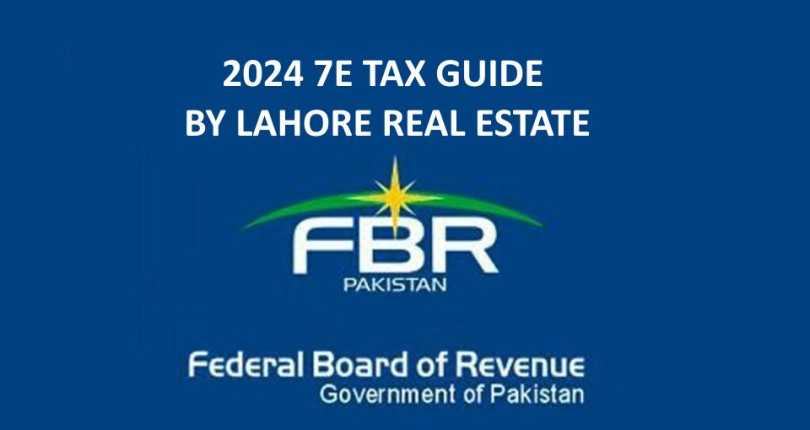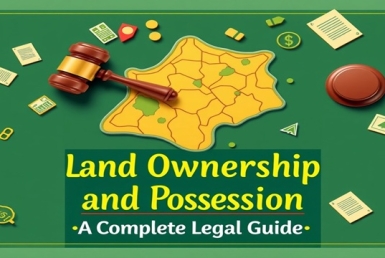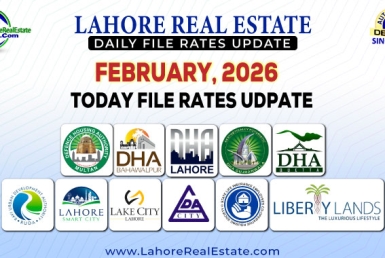2024 Guide Pakistan Immovable Property Deemed Income Tax 7E

Demystifying the 7E Tax: A Comprehensive March 2024 Guide to Deemed Income on Immovable Property in Pakistan
The Section 7E tax in Pakistan is a tax on deemed income from immovable property, introduced through the Finance Act, 2022. Here’s a comprehensive overview of what it entails and the exemptions it includes:
It Applies to:
– It applies to *resident persons* who are treated as having derived income equal to *5% of the fair market value* of their capital assets situated in Pakistan.
Tax Rate:
– This deemed income is chargeable to tax at a rate of *20%* under Division VIIIC of Part I of the First Schedule of the Income Tax Ordinance¹. This effectively translates to *1% of the property’s fair market value*.
Exemptions:
– The following are exempt from this tax:
– One capital asset owned by the resident person.
– Self-owned business premises where the business is conducted by active taxpayers.
– Self-owned agricultural land where agriculture activity is carried out (excluding farmhouses and annexed land).
– Capital assets allotted to:
– Families of martyrs (Shaheed) or individuals who passed away while serving in the Armed Forces or government.
– War-wounded individuals during such service.
– Ex-servicemen and serving personnel of armed forces or government employees who are original allotees of the asset.
– Properties from which income is already taxed under existing regulations.
– Assets in the first year of acquisition where tax under section 236K has been paid.
– Assets with a total aggregate fair market value not exceeding PKR 25 million.
– Assets owned by government entities, including provincial and local governments, local authorities, and development authorities.
– Assets owned by builders and developers registered with the Directorate General of Designated Non-Financial Businesses and Professions.
Additional Information:
– Residents of Punjab are required to obtain an FBR clearance certificate for property transfers in DHAs and private developers.
For those affected by this tax, it’s important to consult with a qualified tax professional to ensure proper compliance and to understand how individual circumstances may affect tax liabilities. The information provided here is based on the latest available data as of 2024.
Section 7E of the Income Tax Ordinance, 2001, introduced through the Finance Act 2022, imposes tax on deemed income from immovable property situated in Pakistan.
Here are the key points:
The introduction of Section 7E in the Finance Act, 2022 of Pakistan ignited a flurry of questions and concerns, particularly regarding its implications for immovable property ownership. This tax, levied on deemed income derived from such property, necessitates a deeper dive into its intricacies.
Understanding the Fundamentals: 7E Tax
The 7E tax essentially imposes a levy on resident individuals who are considered to have earned income equivalent to 5% of the fair market value of their capital assets, which encompass land and buildings situated within Pakistan. This deemed income is then subjected to a taxation rate of 20%, effectively translating to 1% of the property’s fair market value.
Navigating the Exemptions and Exclusions:
While the 7E tax might appear all-encompassing on the surface, several exemptions and exclusions offer relief to specific categories of individuals and properties.
Exemptions by individual category:
-
- Families of martyrs (Shaheed) and individuals who passed away while serving in the Armed Forces, Federal or Provincial Governments,
- Individuals war-wounded during such service.
Exemption by asset category:
-
- A resident individual’s single owned capital asset.
- Self-owned business premises where the individual actively conducts business.
- Self-owned agricultural land actively used for agricultural purposes (excluding farmhouses and annexed land).
- Properties for which income is already taxed under existing regulations.
Additional exclusions:
-
- Capital assets acquired within the first year, where tax under section 236K has already been paid.
- Assets with a total aggregate fair market value not exceeding PKR 25 million, excluding specific categories mentioned above.
- Assets owned by various government entities, including provincial and local governments, local authorities, and development authorities.
- Assets owned by builders and developers registered with the Directorate General of Designated Non-Financial Businesses and Professions.
In essence, the 7E tax primarily targets deemed income from specific immovable properties, excluding a significant portion of assets based on ownership categories, purpose of the property, and existing tax regulations. Consulting with qualified tax professionals is highly recommended to navigate individual circumstances and ensure proper compliance with the 7E tax regulations.
If you are resident of Punjab You are now required to get a FBR clearence certificate that is issued online at FBR website https://e.fbr.gov.pk/esbn/Verification# to have your property transfered in DHAs and private developers.
For more details& tips how to legaly avoid 7E tax in future feel free to send message to us at Lahore Real Estate whatsapp hotline +923224929992
Discussus It On Forum https://lahorerealestate.com/ads/










Join The Discussion
You must be logged in to post a comment.